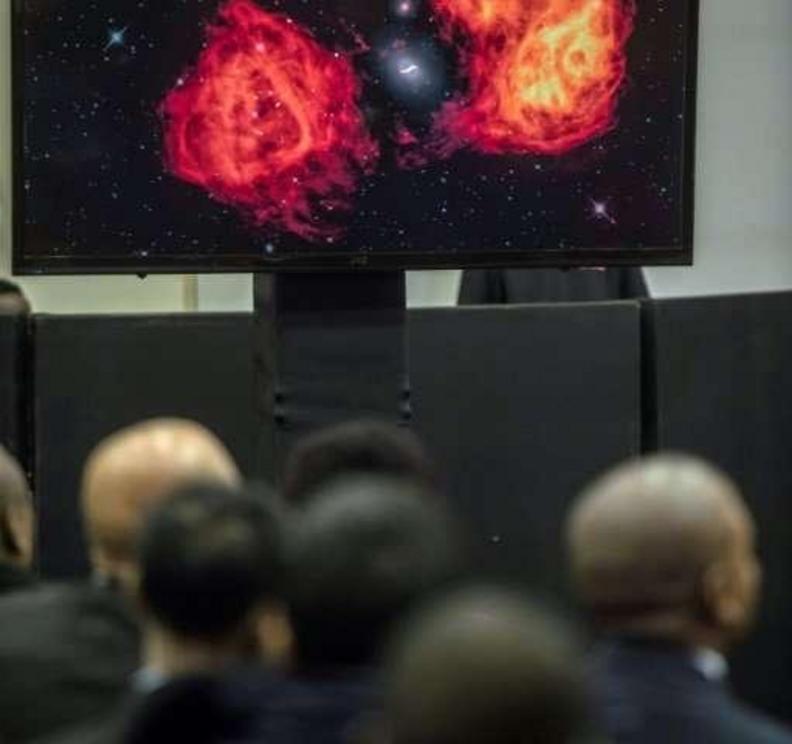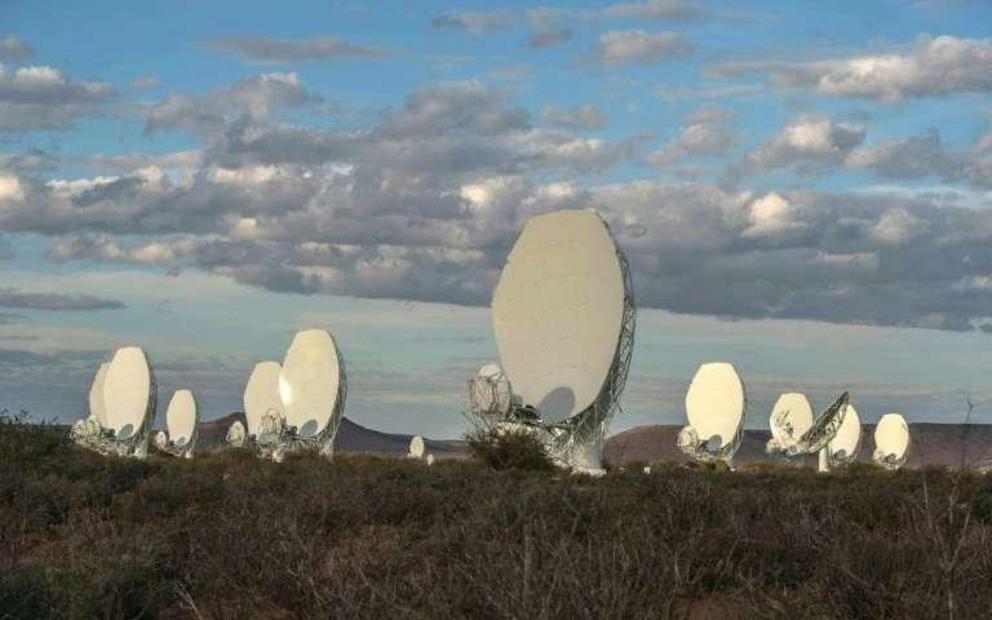South Africa unveils super radio telescope
South Africa on Friday unveiled a super radio telescope, a first phase of what will be the world's largest telescope in a project to try to unravel the secrets of the universe.
The 64-dish MeerKAT telescope in the remote and arid Karoo region of South Africa will be integrated into a multi-nation Square Kilometre Array (SKA).
When fully operational, the SKA telescope will be 50 times more powerful than any other telescope in the world.
"The telescope will be the largest of its own kind in the world—with image resolution quality exceeding the Hubble Space Telescope by a factor of 50 times," said David Mabuza, the deputy president of South Africa.
"This day represents some of Africa's milestones... in our quest to catch up with the rest of the world and make our own contributions to civilisation," he said at a ceremony attended by scientists and dignitaries.
Expected to be fully up and running by 2030, the SKA will comprise a forest of 3,000 dishes spread over an area of a square kilometre (0.4 square miles) across remote terrain in several African countries and Australia to allow astronomers to peer deeper into space with unparallelled detail.
A panorama captured by the MeerKAT telescope on Friday showed "the clearest view yet" of the black hole at the centre of the Milky Way Galaxy, according to the South African Radio Astronomy Observatory.
 Expected to be fully up and running by 2030, the system will comprise 3,000 dishes spread across remote terrain in several African countries and Australia to allow astronomers to peer deeper into space with unparallelled detail
Expected to be fully up and running by 2030, the system will comprise 3,000 dishes spread across remote terrain in several African countries and Australia to allow astronomers to peer deeper into space with unparallelled detail
The SKA will explore exploding stars, black holes and traces of the universe's origins some 14 billion years ago.
South Africa, which hosts the bulk of the SKA project, has invested 3.2 billion rands ($240-million) so far into the telescope.
The telescope is being built by an international consortium, including Australia, Britain, Canada, China, India, Italy, New Zealand, Sweden and the Netherlands.
Other African countries involved are Botswana, Ghana, Kenya, Madagascar, Mauritius, Mozambique, Namibia and Zambia.
Last month, scientists linked a powerful optical telescope, MeerLITCH, built 200 kilometres (125 miles) south of Carnarvon, with the MeerKAT to allow for simultaneous optic and radio study of cosmic events as they occur.

